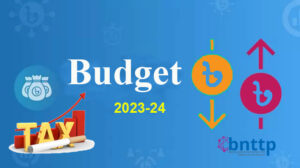Budget Reaction 2023-24
Budget’s Positive Move: MRP Determination on Cigarettes, But Government Faces Revenue Lose in Absence of Specific Taxation

The proposed budget for the financial year 2023-24 has made the sale of cigarettes at the maximum retail price mandatory. It has been said, ‘Cigarettes will not be sold at a price higher than the MRP or Maximum Retail Price written on the packet’ which is a very significant and decisive stance in terms of revenue collection and tobacco control. Because by selling cigarettes at a price higher than the price written on the cigarette packet, the tobacco companies evade revenue of about 5000 crore taka every year. This decision will be an effective step to prevent tax evasion by cigarette companies. However, strict monitoring by Department of National Consumers Right Protection and National Board of Revenue department is necessary to implement this decision. Action should be taken against tobacco companies in case of any kind of price manipulation.
Tobacco tax research institute and knowledge hub Bangladesh Network for Tobacco Tax Policy (BNTTP) said this in response to the budget for the fiscal year 2023-24 on Thursday (June 1, 2023).
Besides, according to the proposal of anti-tobacco organizations, the price of jorda per 10 grams is fixed at Tk 45 and 55 percent supplementary duty exists as before. A supplementary duty of 55 per cent has been imposed by fixing the price of Gul at Tk 23 per 10 grams. However, BNTTP also said that NBR should focus on standard packaging and market monitoring to prevent revenue evasion on smokeless tobacco products.
In the budget response sent by BNTTP, it is said that in this year’s budget, the price of low-tier 10-stick cigarettes has been increased by just 5 Taka making it to 45 Taka, an increase of only 50 paisa per stick. This increase will not contribute effectively to reducing tobacco use. In case of an increase of 50 paisa per stick, tobacco companies will increase the price of 1 taka per stick in the market which will help them to make an unwanted profit.
The rate of supplementary duty at this low tier has been increased from 57 percent to 58 percent. Here the experts’ recommendation of 65 percent duty has been ignored. About 77 percent of smokers in the country consume low-tier cigarettes. If the price of cigarettes at this tier is increased to 50 taka and the tax rate is 65% according to the recommendations of the experts, it would have contributed significantly to both reducing smoking and increasing revenue.
Apart from this, the price of 10 stick cigarettes has been increased by just 2 Taka to 67 taka and 113 taka in the middle and high tier and the price of 10 stick cigarette has been increased by 8 taka to 150 taka in the premium tier. This minimal increase will not make any contribution to reducing smoking. Rather, BNTTP believes that tobacco companies will increase their profits by increasing the share of tobacco companies from the increased prices and increasing the prices at retail outlets, which will hinder the implementation of the announcement of the Honorable Prime Minister to make Bangladesh tobacco-free by 2040.
In response to the budget, BNTTP convener and professor of Economics Department of University of Dhaka, Rumana Haque said that this budget retains the flawed ad-valorem system of taxation on tobacco products. A specific tax on tobacco products instead of the ad-valorem system as recommended by tobacco tax experts would also contribute effectively to increasing government revenue and reducing tobacco consumption, as well as reducing opportunities for tax evasion by tobacco companies and making the revenue collection process easier and more effective.
The price of cigarettes proposed in this year’s budget will increase the profits of tobacco companies. At the same time, it will not make the desired contribution to reducing smoking and will have a negative impact on the public health of the country.

